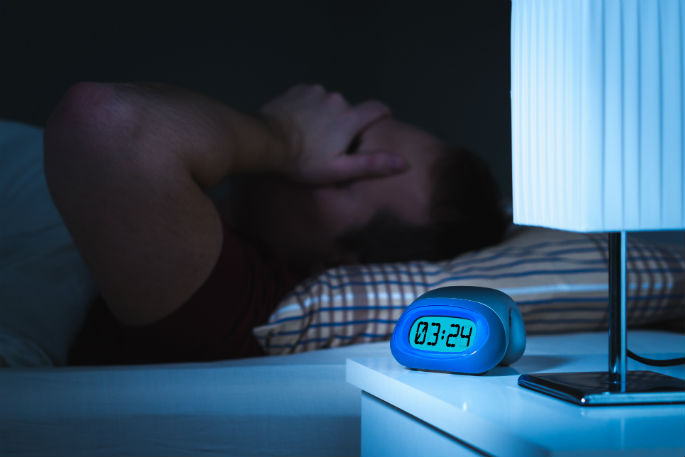With Fitbits and Garmins growing in popularity, people are beginning to think they know their bodies inside and out.
The devices, which do just about everything from monitoring your heart to telling you how much fat you burn with each step, are giving us all the information we need straight from our wrists.
However, when it comes to monitoring our sleep, Dr Alex Bartle says they aren't as accurate as we may think.
'The problem is they mostly measure movement, so they don't measure sleep very well at all,” says the sleep expert.
'To get an accurate test you have to measure brainwaves, and you can't do that via a thing on your wrist.”
Tests have been conducted to see how accurate such monitors are against full overnight sleep studies in hospital.
The results suggest these devices are only around 50-60 per cent accurate.
It is widely suggested that adults need between six and eight hours of sleep each night, but it is the quality of sleep that also matters.
'Enough sleep is a minimum of six hours a day,” says Alex. 'It has been recorded that some people only need five hours sleep, but to be honest most people need at least six.
'If you find you need over nine hours, you may genetically need a long sleep, or it may mean you have a sleep disorder because your quality of sleep is not good enough.”
While you rest, your body also goes through different stages of the sleep cycle.
'The more high-tech devices also track your deep sleep and light sleep, making you think that deep sleep is much more valuable than light sleep, but both are really valuable.”
You spend roughly 75 per cent of your night in non-REM sleep and the other 25 per cent in REM sleep.
Deep sleep is the stage you need to feel refreshed when you wake up in the morning. During deep sleep your body and brain waves slow down. The first cycle of deep sleep lasts anywhere from 80 to 100 minutes.
It supports short-term and long-term memory and overall learning, and it is also when your body releases important hormones, restores energy, regenerates cells and strengthens your immune system.
REM sleep, or light sleep, occurs throughout the night about every 90 minutes. Your eyes move rapidly from side to side, and you may experience dreaming as your brain activity increases to a more wakeful state.
Your heart rate also increases near its wakeful state, your breathing becomes faster - and even irregular at times - and your limbs may even become paralysed.
Alex says REM sleep helps increase your memory and cognitive abilities.
'After about 90 minutes, you have some brief REM, so the monitors may say your awake, but you're not. You're just in a very light sleep or you may wake up,” says Alex.
'That's another misconception. People think you sleep through the night, but no one sleeps completely through the night.”
He says most people who think they've slept through the night wake up and go back to sleep straight away without realising they've woken. Others think they've had a terrible sleep because they remember waking up throughout the night.
'When people remember they've woken up through the night they think they're experiencing terrible sleep, but it's normal,” explains Alex.
If people are experiencing poor quantity sleep or ‘insomnia', there are three strategies used to overcoming this - sleep hygiene, stimulus control and sleep scheduling.
'Stimulus control is the idea that the bed is for sleep, and that implies that if you're not asleep you shouldn't be in bed. Sleep scheduling is improving your sleep efficiency.
'A lot of people who have insomnia go to bed earlier, so they are in bed for 10 hours and they think they are only sleeping for three or four hours, so most of the time they're in bed they're not sleeping. From there, bed becomes an anxious place.
'A way of overcoming that is restricting your time in bed, starting out only having the bare minimum and expanding your time in bed from there.
'Sleep is all about confidence, and what people lose when they have sleep issues is the confidence to be able to go to bed and go to sleep.”



1 comment
Lack of sleep
Posted on 09-03-2019 15:14 | By LyricalSoul
I was someone who didn't have good sleep for 18 years due to chronic health issues & menopause & there didn't seem to be an answer in sight as I tried everything, & now I am telling everybody about Magnesium sleep cream you can get from Healthpost NZ online for $13.80 a tub & it really works, it's a miracle in a jar.
Leave a Comment
You must be logged in to make a comment.